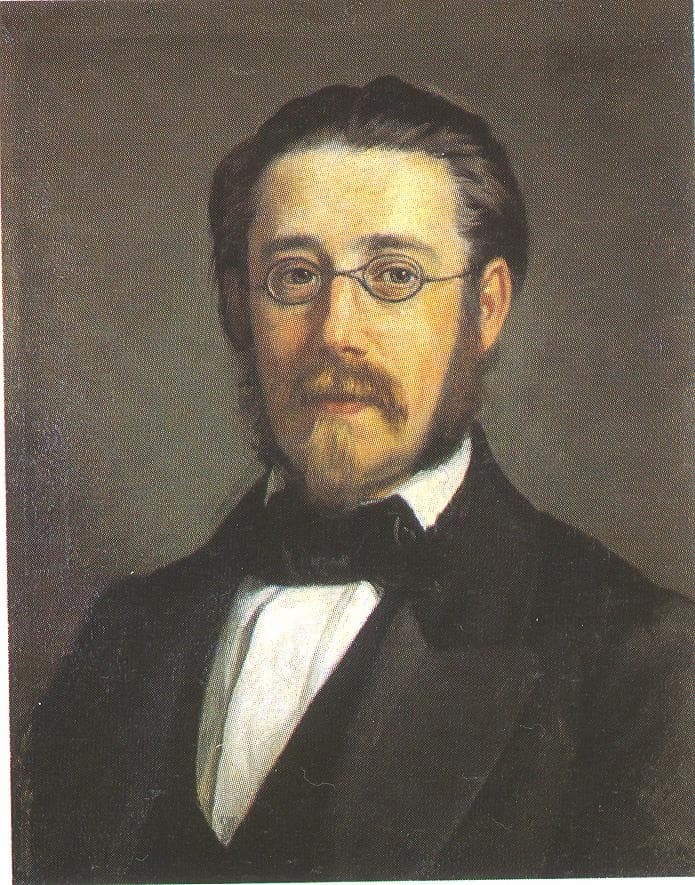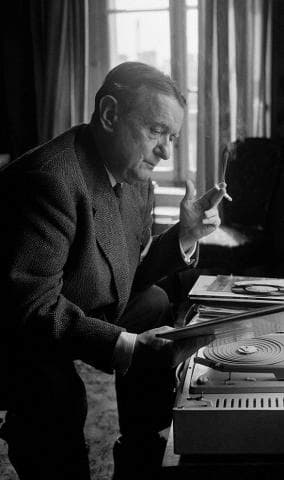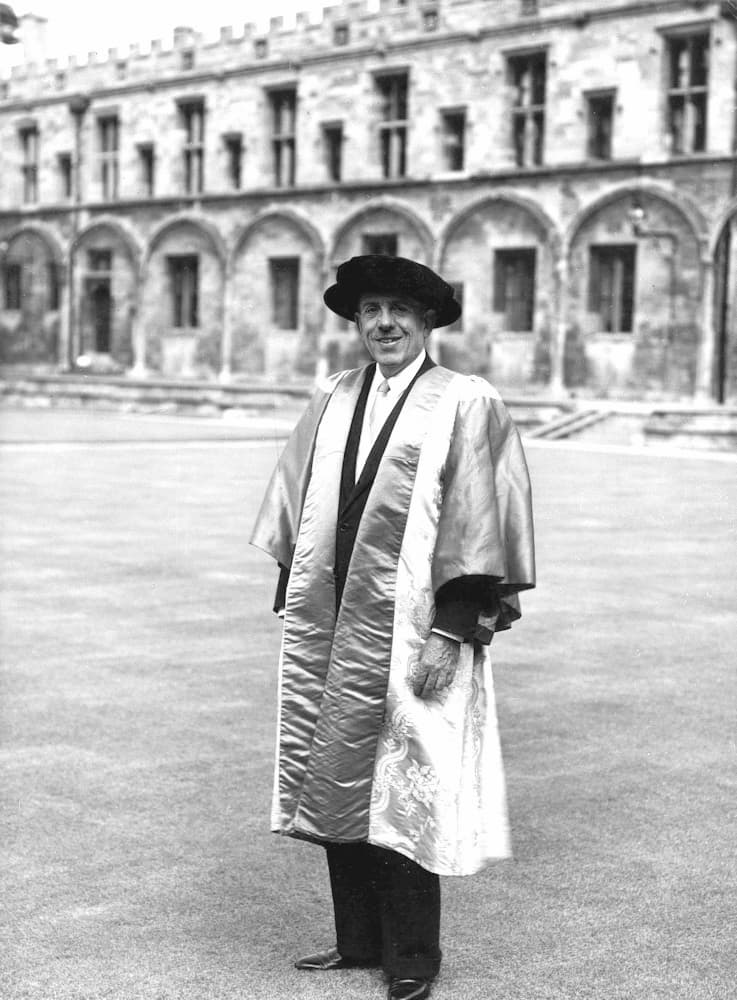Muse, Femme Fatale, Composer
 Her admirers described Alma Schindler as pathologically cruel, anti-Semitic, exceedingly vain, prone to excessive drinking, and utterly obsessed by a sense of entitlement that the world owed her something in return for her brilliance and beauty. Really makes you wonder what her enemies had to say about her, doesn’t it? She lived in constant fear that posterity would judge her too harshly, and meticulously edited and amended all correspondence, including her memoirs. She was drawn to older men with artistic credentials, intellect, creativity or money, and she attracted them like flies. She read Nietzsche, Schopenhauer and Plato, and began to collect her own library at age fifteen. She took painting lessons from Gustav Klimt, who also first kissed her at seventeen, and had been playing the piano and composing music since age nine. Her friend Bertha Zuckerkandl jealously wrote in her diary. “She is beautiful—that is intolerable. She plays excellently—that is annoying. And also composes—it’s enough to drive you crazy!” Without doubt, Alma Schindler-Mahler-Gropius-Werfel was one of the most colorful and controversial personalities in the Viennese artistic circles of the early 20th century.
Her admirers described Alma Schindler as pathologically cruel, anti-Semitic, exceedingly vain, prone to excessive drinking, and utterly obsessed by a sense of entitlement that the world owed her something in return for her brilliance and beauty. Really makes you wonder what her enemies had to say about her, doesn’t it? She lived in constant fear that posterity would judge her too harshly, and meticulously edited and amended all correspondence, including her memoirs. She was drawn to older men with artistic credentials, intellect, creativity or money, and she attracted them like flies. She read Nietzsche, Schopenhauer and Plato, and began to collect her own library at age fifteen. She took painting lessons from Gustav Klimt, who also first kissed her at seventeen, and had been playing the piano and composing music since age nine. Her friend Bertha Zuckerkandl jealously wrote in her diary. “She is beautiful—that is intolerable. She plays excellently—that is annoying. And also composes—it’s enough to drive you crazy!” Without doubt, Alma Schindler-Mahler-Gropius-Werfel was one of the most colorful and controversial personalities in the Viennese artistic circles of the early 20th century.
Alma Maria Schindler-Mahler: In meines Vaters Garten (In my father’s garden)
For Alma Schindler, music was the most dependably joy of her life. She confided in her diary “Nothing interested me except music, and when Gustav Klimt entered my life as my first great love, I was totally absorbed in my music and far removed from life in the real world.” In 1895, she started composition lessons with Vienna’s must influential music teacher, the blind organist Josef Labor. Once a week, Alma would visit Labor’s apartment and play him her latest compositions, predominantly songs and short pieces for piano. “Labor was again satisfied,” she reports, “I played him my Adagio and my latest song, and he pronounced it a worthy achievement for a girl… Yes, it is a curse to be a girl, for one cannot overcome one’s defects.” Yet, Alma certainly enjoyed the status she gained from her musical talent, and her songs, sung by her mother at social gatherings, garnered praise from family and friends.
Although she continued her lessons with Labor, Alma concordantly began musical studies with the aspiring composer Alexander Zemlinsky. She quickly found herself attracted to her new mentor, and when Alexander took his girlfriend Melanie Guttmann to a public performance of his music, Alma angrily wrote in her diary “That hurt me, and now when I write this, I am more than indifferent. Jewish coward! Keep your crooked-nose Jewish girlfriend. She suits you!” But Zemlinsky’s attraction to his old girlfriend was quickly broken, and he fell passionately in love with her. For more than two years, their relationship followed a rather predictable pattern. Zemlinsky would regularly come to the house of Alma’s stepfather Carl Moll and instruct his beautiful charge in the art of composition. He would sit at the piano and work through Alma’s latest exercises and Lied compositions, alternately admonishing and praising her newest creations. After an hour or two, they would move to the sofa and engage with rather more personal matters! As the relationship deepened, Alma reports, “He played my song In meines Vaters Garten with such beauty, as I never can play it. We both tremble from immeasurable longing. I long for a child by him. I will be a wife to him.” Five days later Alma first met Gustav Mahler, and her life was changed forever.
By the time of her engagement to Gustav Mahler, Alma had composed over one hundred Lieder, various instrumental pieces and the beginnings of an opera. In 1901, however, Mahler penned a 20-page letter to Alma, describing in considerable detail what he expected from his wife. Most significantly, Mahler dictated that Alma gives up her own musical ambitions. “How do you imagine both wife and husband as composer? Do you have any idea how ridiculous and subsequently how much such an idiosyncratic rivalry must end up dragging us both down? How will it be if you happen to be just ‘in the mood’ but have to look after the house for me, or get me something I happen to need, if you are to look after the trivialities of life for me? Does this mean for you breaking off your own life, and do you think you will have to do without a high point which you cannot live without, if you entirely give up your music in order to possess—and also to be—my own?” Alma dejectedly confided in her diary,” He thinks nothing at all of my art—and thinks a great deal of his own. And I think nothing of his art and a great deal of my own.” Following Alma’s affair with Walter Gropius in 1910, Mahler changed his mind and suddenly turned his attention to the youthful compositions of his wife. He proposed that they jointly rework them, and even published five Lieder with Universal Edition. Only 17 songs by Alma Maria Schindler-Mahler have survived. Fourteen were published during her lifetime, and three songs discovered posthumously in manuscript. The remaining compositions were lost during World War II.
You May Also Like
More Composers
-
 Henry Mancini “Success is not usually easy or fast”
Henry Mancini “Success is not usually easy or fast” -
 Bedřich Smetana “My fatherland means more to me than anything else”
Bedřich Smetana “My fatherland means more to me than anything else” -
 Georges Auric “Down with impressionism and all those beautiful sonorities”
Georges Auric “Down with impressionism and all those beautiful sonorities” -
 Francis Poulenc “I simply follow my own feelings”
Francis Poulenc “I simply follow my own feelings”




